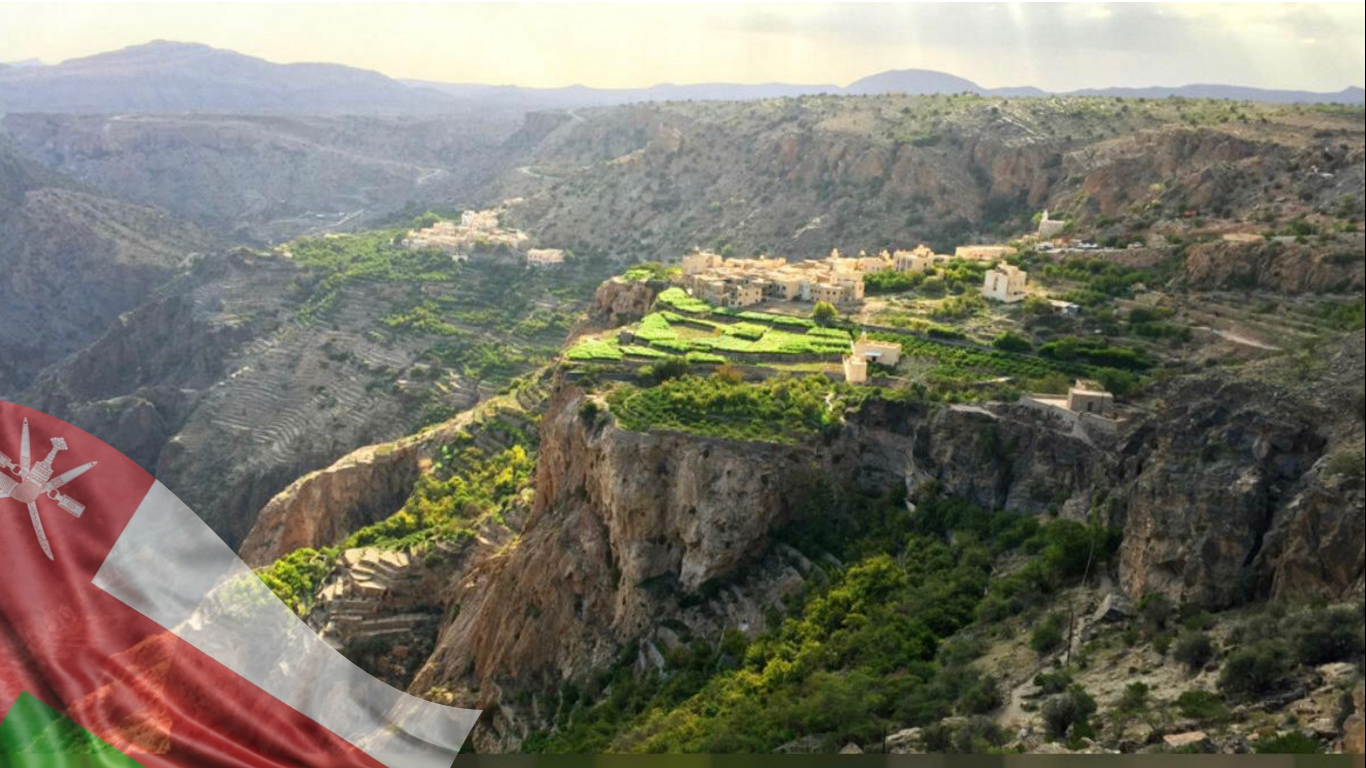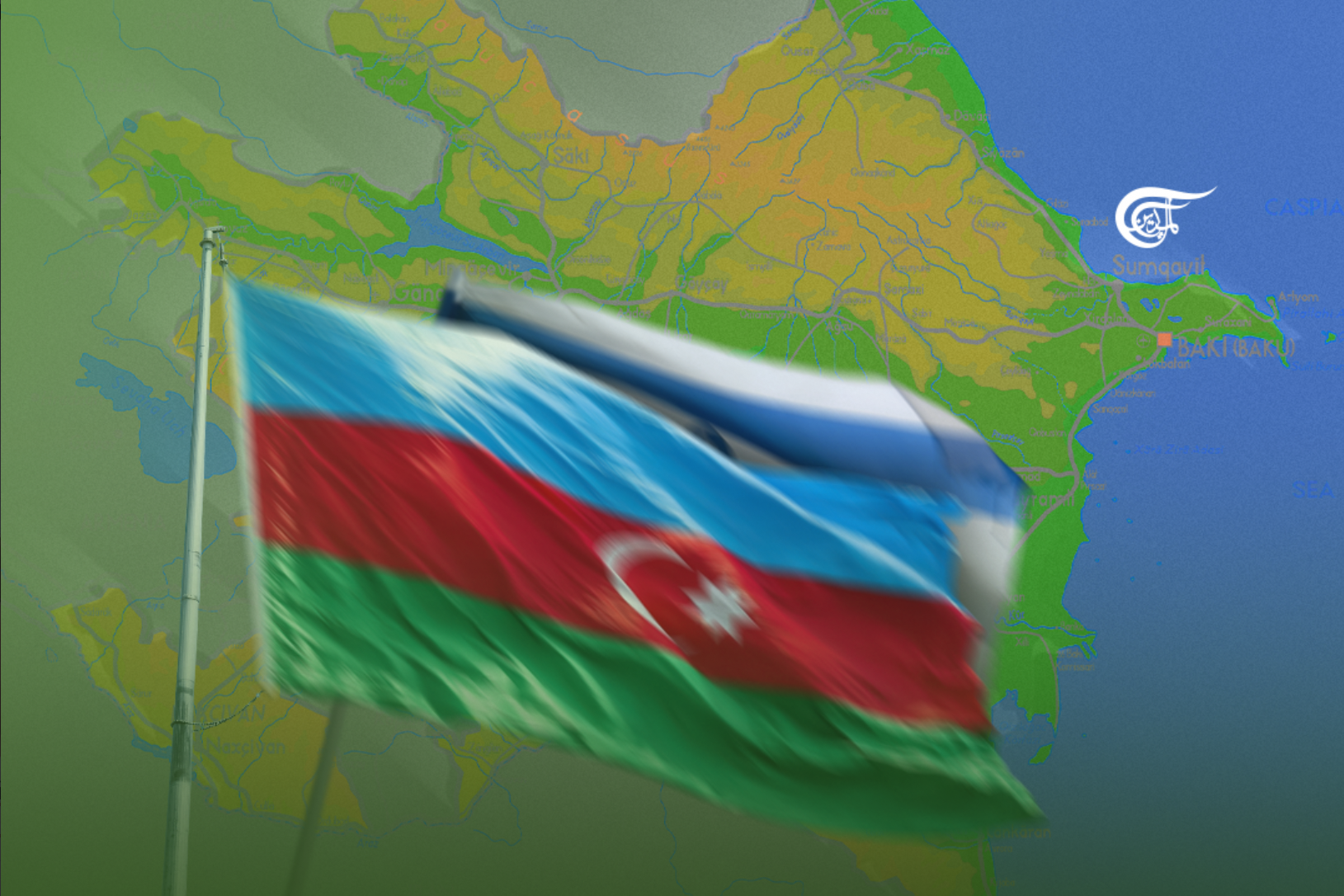https://www.almayadeen.net/articles/ماذا-تريد-إسرائيل-من-أذربيجان
Muḥammad Farağ Source: al-Mayadeen net 04 October 13:43
For “Israel” Azerbaijan is not not only an economic client, but has a geography with a border with Iran more than 700 kilometers.
In the year of 1993 “Israel” opened its embassy in Azerbaijan, right in Baku. After the step for diplomatic representation the official and unofficial visits have speeded up, including a meeting between Netanyahu and the Azeri President at the time Haydar Aliyev in 1997. That was followed by a number of visits, including visit by Peres to the son, Ilham Haydar Aliyev in 2009, which included talks about Azerbaijan’s control over Nagorno-Karabah and to activate a cooperation on the fields of economy and cultural. In this context we shall ask: What does “Israel” want from Azerbaijan?
First: Azerbaijan means an economic opportunity for “Israel” as a weapons and military services exporter in the form of training and consultancy. Also buying security systems, which arrived to Baku airport. The re-emerging Central Asian republics were in need to revise the old Soviet era perceptions after the dissolve, or to replace them. Some amongst these states needed “patience” to cut a hard deal by restricting the cooperation with the modern Russia led by Putin. Others (Azerbaijan) in the changing world by the American interest viewed a chance to open up to “the winning side” and its partners, and with great speed offered to strengthen cooperation with the Occupying Entity [“Israel” – Amaraia], even though later on made many arms deals with Russia.
According to the Sibery Institute Azerbaijan imported 69% of its weapons from “Israel” during the time between 2016-2020 and during the clashes in 2020. Armenia recalled its ambassador from “Israel” in protest for the Israeli support for Azerbaijan in arms, which it used on the battlefields against it.
Secondly: For “Israel” Azerbaijan does not only mean an economic client, but has a geography with a border with Iran more than 700 kilometers. This represents a chance for “Israel” for spying and cyber warfare. Many research papers point out that the monitoring drones along the Iranian border have Israeli signals and are of Israeli manufacturing.
“Israel”, which feels that it is under siege from the north (Ḥizb Allah and Syria) and from the south (Gaza) is worried that it is not distant from Yemen and Iraq [either] tries to impose a counter spiral around Iran via numerous fields, starting from the Gulf states and not even ending with Azerbaijan and the Kurdistan region in Iraq. Which latter held a recent conference within its provocative attempts there.
Thirdly: “Israel” imports most of its oil needs from two Asia sources. These are the Iraqi Kurdistan region and Azerbaijan. Both of them are reached by the Turkish “Ceyhan” port. According to the “Trading economics” website “Israel” imported in the value of $1,3 billion in 2020 in oil from Azerbaijan, and $434 million in 2019. In average “Israel” imports some 30-40% of its oil needs from Azerbaijan.
Fourthly: The plan of “Israel” is built on gaining the biggest number of achievement by obtaining global recognition for itself, and its biggest thirst in this attempt is in the Islamic world. Azerbaijan, which hosted an Israeli embassy in 1993 did not open an embassy there [in Israel], worrying from the pressure from the Islamic world. The exact details of its relations with “Israel” remained secret, but lately in August this year it [Azerbaijan] opened a trade exchange office in “Tel Aviv”. “Israel” gambles on this being the preparation for opening an embassy.
Basically the Israeli and the Azeri sides are gambling on forming a four ways axis including in it Georgia and Turkey confronting the Syrian-Iranian-Russian-Armenian axis, but it seems that the hopes for the first alliance arose the worries of Turkey on losing its following in the Islamic world (which forms a central point in its project in the region), and by Georgia not being able to distance itself from the Russian reservations.
The turmoils along the borders between Azerbaijan and Iran clearly revealed these foreign policy ambitions for Iran, which is not built on sectarian basis, but is outlined by an attempt emanating from the enemies of “Israel”. So when a country 85% made up of Shiis forms an alliance with “Israel” its share of Iranian sentiment cannot be anything else, than an enemy.
————————————————————————————————————————
The aforementioned views of this article does not necessarily reflect the opinion of al-Mayadeen, but exclusively expresses the opinion of its owner.
————————————————————————————————————————
Muḥammad Farağ
Jordanian researcher and writer. From him the followings were published: “Capitalism and new hierarchical models”, “The dangers of foreign funding – Non-governmental centers and organizations”, and “The roots of isolated politics”.
ماذا تريد “إسرائيل” من أذربيجان؟
محمد فرج المصدر: الميادين نت 4 تشرين اول 13:43
أذربيجان بالنسبة إلى “إسرائيل” ليست زبوناً اقتصادياً فقط، فهي تمتلك جغرافياً حدوداً بطول أكثر من 700 كم مع إيران.
في العام 1993، افتتحت “إسرائيل” سفارتها في أذربيجان، وتحديداً في باكو. تسارعت الزيارات الرسمية وغير الرسمية بعد خطوة التمثيل الدبلوماسي، ومنها لقاء نتنياهو والرئيس الأذربيجاني آنذاك حيدر عالييف في العام 1997، ولحق بها عدد من الزيارات، منها زيارة بيريز للابن إلهام حيدر عالييف في العام 2009، والتي شملت الحديث عن سيطرة أذربيجان على ناغورنو كاراباخ وتفعيل التعاون في المجالات الاقتصادية والثقافية. وفي هذا الإطار، نسأل: ماذا تريد “إسرائيل من أذربيجان”؟
أولاً: تشكل أذربيجان فرصة اقتصادية لـ”إسرائيل” كمستورد للسلاح والخدمات العسكرية من تدريب واستشارات، وكذلك شراء الأنظمة الأمنية التي وصلت إلى مطار باكو. كانت جمهوريات آسيا الوسطى الناشئة بحاجة إلى إعادة تأهيل المعدات السوفياتية القديمة بعد التفكك أو عملياً استبدالها. من هذه الدول من “صبر” على انقضاء العقد الصعب لإعادة التعاون مع روسيا الحديثة بقيادة بوتين، وأخرى (أذربيجان) رأت في تغير العالم لمصلحة الأميركي فرصة للانفتاح على “الطرف المنتصر” وأعوانه، وبادرت بسرعة كبيرة إلى تعزيز التعاون مع كيان الاحتلال، على الرغم من تعاقدها لاحقاً في أكثر من صفقة سلاح مع روسيا.
وبحسب مركز سيبري، استوردت أذربيجان 69% من سلاحها من “إسرائيل” خلال الفترة الممتدة بين 2016-2020. وخلال الاشتباكات العسكرية في العام 2020، استدعت أرمينيا سفيرها من “إسرائيل” احتجاجاً على الدعم الإسرائيلي لأذربيجان بالسلاح، والذي استخدم في ساحات المعارك ضدها.
ثانياً: أذربيجان بالنسبة إلى “إسرائيل” ليست زبوناً اقتصادياً فقط، فهي تمتلك جغرافياً حدوداً بطول أكثر من 700 كم مع إيران. يشكل ذلك فرصة بالنسبة إلى “إسرائيل” للتجسس والحروب السيبرانية. ويشير عدد من الأوراق البحثية إلى أن مسيّرات المراقبة على الحدود مع إيران ذات بصمة وصناعة إسرائيلية.
“إسرائيل” التي تشعر بأنها محاصرة من الشمال (حزب الله وسوريا)، ومن الجنوب (غزة)، وبقلق ليس بعيداً من اليمن والعراق، تحاول أن تفرض طوقاً مضاداً على إيران عبر مساحات متعددة، ابتداء من دول الخليج، وليس انتهاء بأذربيجان وإقليم كردستان في العراق، الذي دلّ المؤتمر الأخير على محاولاتها الحثيثة فيه.
ثالثاً: تستورد “إسرائيل” معظم احتياجاتها من النفط من مصدرين أساسيين، هما إقليم كردستان العراق وأذربيجان، وكلاهما يصلها عبر ميناء “جيهان” التركي. وبحسب موقع “trading economics”، استوردت “إسرائيل” ما قيمته 1.3 مليار في العام 2020 من نفط أذربيجان، و434 مليون دولار في العام 2019. في المعدل، تستورد “إسرائيل” 30-40% من احتياجاتها من النفط من أذربيجان.
رابعاً: تقوم خطة “إسرائيل” على كسب أكبر عدد من النقاط بهدف تحقيق الاعتراف العالمي بها، وهاجسها الأكبر في هذه المحاولة هو العالم الإسلامي. أذربيجان التي استضافت السفارة الإسرائيلية منذ العام 1993، لم تفتتح سفارة لها هناك، قلقاً من ضغط العالم الإسلامي، وأبقت على تفاصيل علاقتها الدقيقة مع “إسرائيل” سرية، ولكنها مؤخراً، في آب/أغسطس من العام الحالي، افتتحت مكتباً للتبادل التجاري في “تل أبيب”، وتراهن “إسرائيل” على أن يكون ذلك تمهيداً لافتتاح السفارة.
في الأساس، راهن الطرفان الإسرائيلي والأذربيجاني على تشكيل محور رباعي يضم إليه أيضاً جورجيا وتركيا في مواجهة محور سوري إيراني روسي أرميني، ولكن تبدو ملامح التحالف الأول هشة مع قلق تركيا من خسارة حضورها في العالم الإسلامي (الذي يشكل نقطة المركز في مشروعها في المنطقة)، وعدم قدرة جورجيا على الذهاب بعيداً عن التحفظات الروسية.
كشفت التوترات على الحدود الأذربيجانية الإيرانية بوضوح ملامح السياسة الخارجية لإيران، والتي لا تقوم على أسس مذهبية، وإنما تحدد بوصلتها انطلاقاً من العداء لـ”إسرائيل”، فعندما تتحالف دولة يشكل فيها المكون الشيعي 85% من سكانها مع “إسرائيل”، لا يكون نصيبها من الشعور الإيراني إلا العداء!
—————————————————————————
إن الآراء المذكورة في هذه المقالة لا تعبّر بالضرورة عن رأي الميادين وإنما تعبّر عن رأي صاحبها حصراً
———————————————————————————————
كاتب وباحث أردني، صدر له “الرأسمالية وأنماط الهيمنة الجديدة”، “مخاطر التمويل الأجنبي – المراكز والمنظمات (غير الحكومية)”، جزر السياسة المعزولة.


